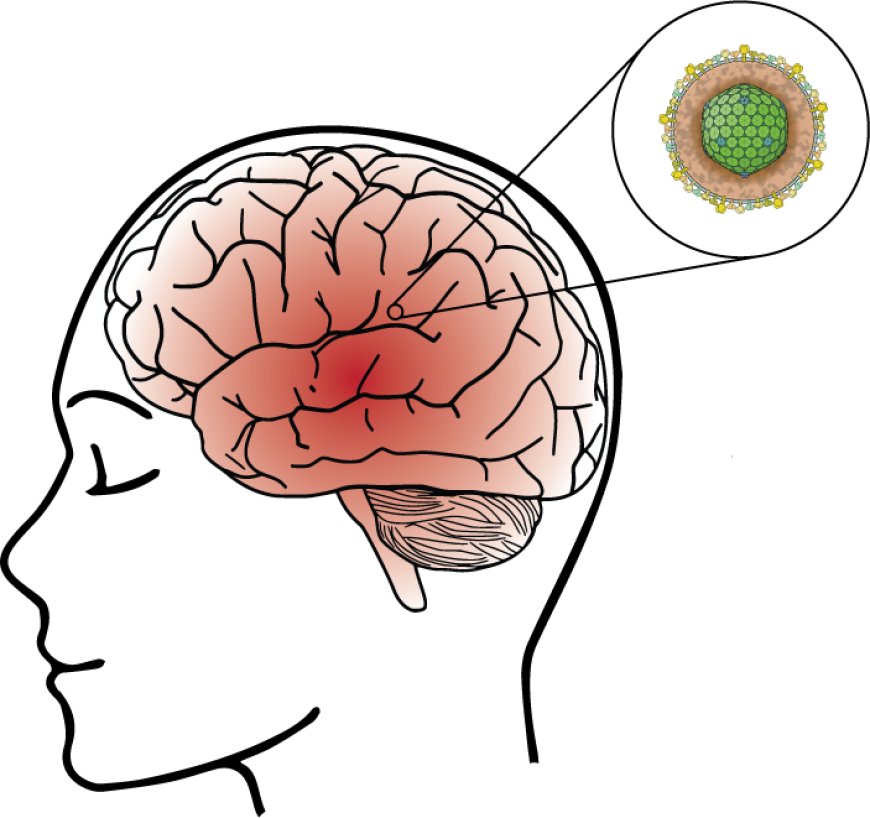Encephalitis

Introduction :
In this article, we'll explore Encephalitis, a serious brain condition that can affect people in India. We'll discuss what Encephalitis is, its signs and symptoms, causes, risk factors, types, diagnostic tests, treatments, complications, and prevention techniques, all explained in simple language for our 10-year-old readers.
Signs and Symptoms:
Encephalitis can be like an unexpected intruder in the brain, causing changes in a person's body. Some common signs and symptoms of Encephalitis include:
- High fever, like having a very hot temperature.
- Severe headache, like feeling a strong pain in the head.
- Changes in behavior, like acting differently or being confused.
What is Encephalitis? :
Encephalitis is a condition that happens when the brain gets inflamed and swollen. It's like a tiny storm inside the brain that can make people feel very sick.
How Is Encephalitis Classified? :
Encephalitis is classified based on its cause, how it spreads, and where it occurs. Some types of Encephalitis are caused by viruses, while others may be caused by bacteria or other germs.
Causes and Triggers:
Encephalitis is often caused by viruses that can enter the brain and cause problems. Some viruses spread through mosquito bites, like the Japanese Encephalitis virus, while others can be transmitted through infected animals, like the Nipah virus.
Risk Factors with Examples:
Certain factors can increase the chances of a person getting Encephalitis. For example:
- Living in areas where certain viruses are common, like in some parts of India, can increase the risk of getting infected.
- Not taking precautions to prevent mosquito bites, like using mosquito nets or wearing long sleeves and pants, can also increase the risk of getting infected.
Types of Encephalitis with Detailing for Each Type:
- Viral Encephalitis: This type is caused by viruses and can be spread through mosquito bites. It can cause severe brain swelling and affect the nervous system.
- Bacterial Encephalitis: This type is caused by bacteria and can be more severe. It can be transmitted through infected animals or through the bloodstream.
Diagnostic Tests and Their Use:
To diagnose Encephalitis, doctors may use special tests to check for signs of brain inflammation and infection. Some common tests include:
- Lumbar Puncture: This is like taking a small sample of fluid from the spine to check for signs of infection.
- Brain Imaging: This test uses special machines to create pictures of the brain and check for any abnormalities.
Treatments:
Treating Encephalitis aims to reduce brain swelling and manage the symptoms. Some common treatments are:
- Antiviral Medicines: Doctors may prescribe special medicines to fight the virus causing Encephalitis.
- Supportive Care: This involves providing supportive treatment, like fluids and pain relief, to help the body recover.
Complications of Encephalitis:
If Encephalitis is not managed well, it can lead to severe brain damage and long-term problems like difficulty moving or speaking.
Prevention Techniques:
Preventing Encephalitis is essential, and some techniques can help avoid getting infected. For example:
- Using mosquito nets while sleeping, like a superhero hiding under a shield to keep mosquitoes away.
- Avoiding contact with infected animals and practicing good hygiene, like washing hands regularly.
Remember, just like how we protect ourselves from the sun with sunscreen, taking care of our health and following good habits can keep us safe from diseases like Encephalitis. If anyone feels unwell or notices any unusual changes in their body, it's essential to tell a grown-up and seek medical help for proper evaluation and guidance. With curiosity and good health habits, we can embrace every joyful moment in India's beautiful world, staying healthy and happy!
What's Your Reaction?
 Like
0
Like
0
 Dislike
0
Dislike
0
 Love
0
Love
0
 Funny
0
Funny
0
 Angry
0
Angry
0
 Sad
0
Sad
0
 Wow
0
Wow
0









































































